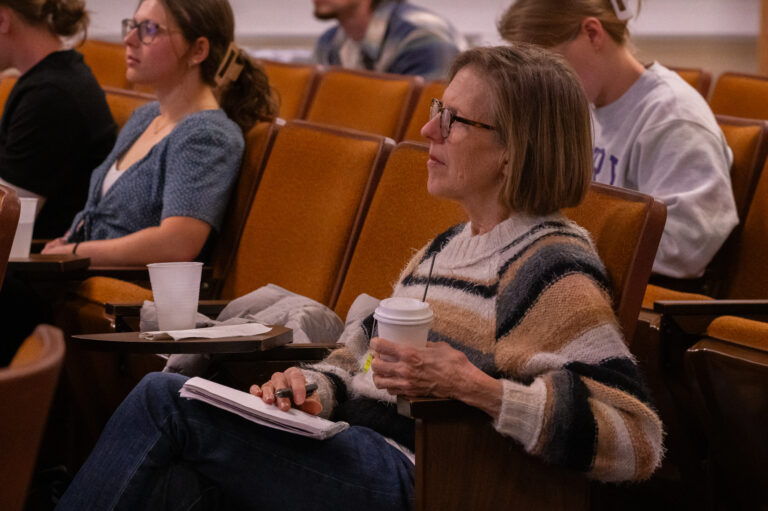Asbury University makes announcements regarding the history and business departments for the upcoming fall semester. Programs have been revised and updated and three new minors have been introduced.
The Asbury Dayton School of Business (DSB) now offers a Certificate in Professional Studies. This 18 credit program is available to undergraduate students of all majors and recognizes formal training in professional sales.
There are two paths to earning the certificate available to students. The first is the new Sales Minor, which is available to students of all majors and fulfills the requirements for the certificate. Students who are majoring in marketing, sport management and business can obtain the certificate with only a few additional classes.
“Demand for salespeople continues to be strong, and research shows that graduates of university sales programs have a 30 percent lower job turnover rate and a 50 percent faster ramp up time,” says Dr. George Allen, Associate Professor of History. “Sales can be a great long-term career, and an entry point into a company of interest or a transitional job while waiting for a target position in another career area to become available.”
Some of the classes to earn the certificate involve Principles of Marketing, Sales Management, Fundamentals of Professional Selling, CRM & Sales Technologies and Advanced Sales. Electives can include Sport Sales & Marketing, Persuasion, Social Psychology and a Sales Internship. The certificate is awarded to the student alongside a bachelor’s degree as a notation on their transcript.
“The certificate will be an indication to prospective employers that students have proficiency in selling skills, making them more attractive prospects for sales and other communication-oriented positions,” says Allen.
The Asbury University Social Sciences and History department also makes announcements for the upcoming fall semester. These announcements include a renewed History major and minor, as well as two new minor options. The updated program will include more digital and global courses.
“Our revamped major and minor ensures students have a more global perspective while also offering them a chance to gain some marketable skills in data science and front-end development,” says Assistant Professor of History Dr. Alex Mayfield. “Ultimately these changes are about ensuring students will continue to gain knowledge and skill sets that prepare them for whatever career path they choose after graduation. The liberal arts teach students how to think critically about concrete problems while also making connections between areas that might seem unrelated. That sort of thinking can help students manage companies, run ministries and succeed in various fields.”
The two new minors being offered in the Social Science and History Department include Human Trafficking Studies and Pre-Law, which can be customized according to the student’s areas of interest. Course options can include migration and trafficking policy, programming in Python (high level programming language), statistics for behavioral sciences and nonprofit fundraising/grant writing.
Assistant Professor of Political Science and History Dr. Glenn Harden, said, “The Human Trafficking Studies Minor can be relevant to multiple majors. Anti-trafficking work brings together people from many sectors, including policy-making, survivor care, law enforcement, business, education, health care, social services, coding, research and religion. Thus, students who major in various disciplines can benefit from learning more about the complexity of human trafficking in the United States and beyond.”
The 18 credit Human Trafficking Studies Minor is part of the political science program and draws from a variety of fields such as psychology, social work, sociology and history. This program will offer courses in global and regional perspectives, psychology and international social issues. Students will also have opportunities for internships, independent studies and seminars.
Professor of Psychology Dr. Laura Dryianska said, “The classes are meant to foster critical thinking and introduce students to key issues and practices which impact human trafficking work while preparing students to be good, collaborative partners with those outside of their primary field of study. Focusing on anti-trafficking efforts is in line with Wesleyan principles and history, where seeking justice for the oppressed is encouraged as an expression of holiness.”
Featured image by Macy Carmony.




